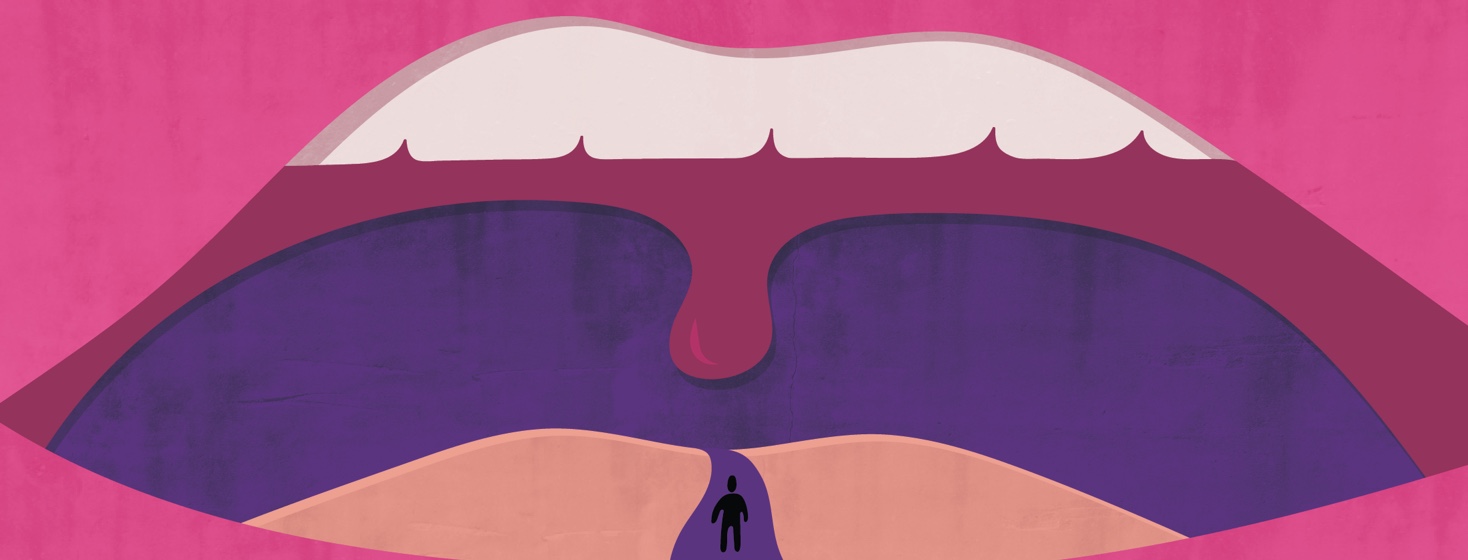What is Going on with My Taste Buds?
You're done with chemo for the day. You're home, and the steroids are making you hungry. You go to the refrigerator to make a ham sandwich and take a bite... Immediately you spit it out, thinking the ham, cheese, or bread is bad. NOPE! It's just your sense of taste! Chemo is bad enough, the poison flowing through your body to make you healthy, and now THIS! My favorite food tastes like garbage. Water tastes like a pond. What am I supposed to do now?
Consulting a dietitian
Fortunately, I was prepared for this eventuality. I decided when I was diagnosed that I didn't want to have to figure out eating out on my own. I saw my mom struggle with eating when she went through chemo. I didn't want it to be my issue. What did I do? The first step was to ask my GYN/ONC for a dietitian consult. He readily agreed.
The dietitian came on my first day of chemo. I was able to ask her questions.
What should I eat and what should I avoid?
I was told to eat foods high in potassium, magnesium, and protein. I needed to keep my fatigue low and count up because I had to work through chemo. She also told me to eat what tasted good. Each of us will have different things that will taste good and bad, and it can change with each round of chemo. She also stated as long as I did not have neutropenia (low white cell counts) I could eat fresh veggies and fruit, but they needed to be washed thoroughly.
How often should I eat?
He told me to keep my strength and energy up. I should try small "snack-like" meals every 2 to 2 and a half hours. In each of these meals, she suggested I have some kind of protein. It didn't necessarily have to be meat, but something high in protein. For me it changed each time I had chemo - sometimes it was meat, cheese, or yogurt. Other times it was a combination of things like Cheerios with milk. I also had a friend who made me homemade guacamole each week I had chemo. I ate a lot of guacamole and chips. Eating like this also helped to stay on track with my antinausea medication as well as kept me from being nauseous.
How do I make food taste good?
This is where seasonings come to play. The dietitian suggested trying foods I may not otherwise eat. She suggested adding things like lemon, pepper, salsas, and other intense spices and flavors to food to help with the taste.
What tips do you have for me?
Some of the best tips I received from her, and have passed along to many others came from this wonderful woman. If you have a metallic taste with cooked foods, DO NOT use non-stick pots, pans, and cooking sheets. Non-stick cooking items can enhance the metallic flavor we're not sensitive to. Use plasticware instead of silverware. I always kept plasticware in a bag in my purse to have it readily available at restaurants and parties. When water tastes funky, try adding some flavor drops or temporarily drink flavored water, juice, soda, or even sports drinks. (I drank a lot of Kool-Aid for 3-4 days after chemo).
Finding what works best for me
A few things I did on my own included finding 2 wonderful cookbooks geared explicitly for people going through cancer. The recipes in these books are sorted by issues you may have, like nausea, neutropenia, fatigue, and more. There are many good ones out there; you just need to find the ones you relate to. Another thing I did was make homemade popsicles from sports drinks (high potassium and magnesium), juice, and Kool-Aid. These were great for times I needed to drink something but just couldn't do water.
I also researched online and made lists of foods high in protein, potassium, and magnesium. I put these lists in my kitchen cupboards and when I just couldn't think of what to eat, they reminded me. This also worked great for making shopping lists for myself. I kept a list of things I couldn't taste or tasted funny too. These lists helped when friends or family wanted to bring my husband and my meals.
The third thing I did that helped with eating and controlling my nausea was to keep a food diary for the day of chemo and the next 3-4 days. I wrote down when and what I ate when I took my medication when I drank any liquid, and how much. This notebook helped my husband help me. He could look at the notebook to see if I was sleeping when he got home and knew if I needed medication as well as the last time I ate or drank.
Grateful for the advice from a dietitian
These tips and actions helped me to have a great experience going through chemo. As weird as it may sound, I felt healthier going through chemo than at any other time in my life. I know it was because I focused more on everything I was eating and drinking. I was forced to make better choices, even if some days ice cream and cake was the only thing that tasted good. I knew I needed those other items in my stomach to feel good. Asking for a dietitian consult was the best first step I could have ever taken.

Join the conversation